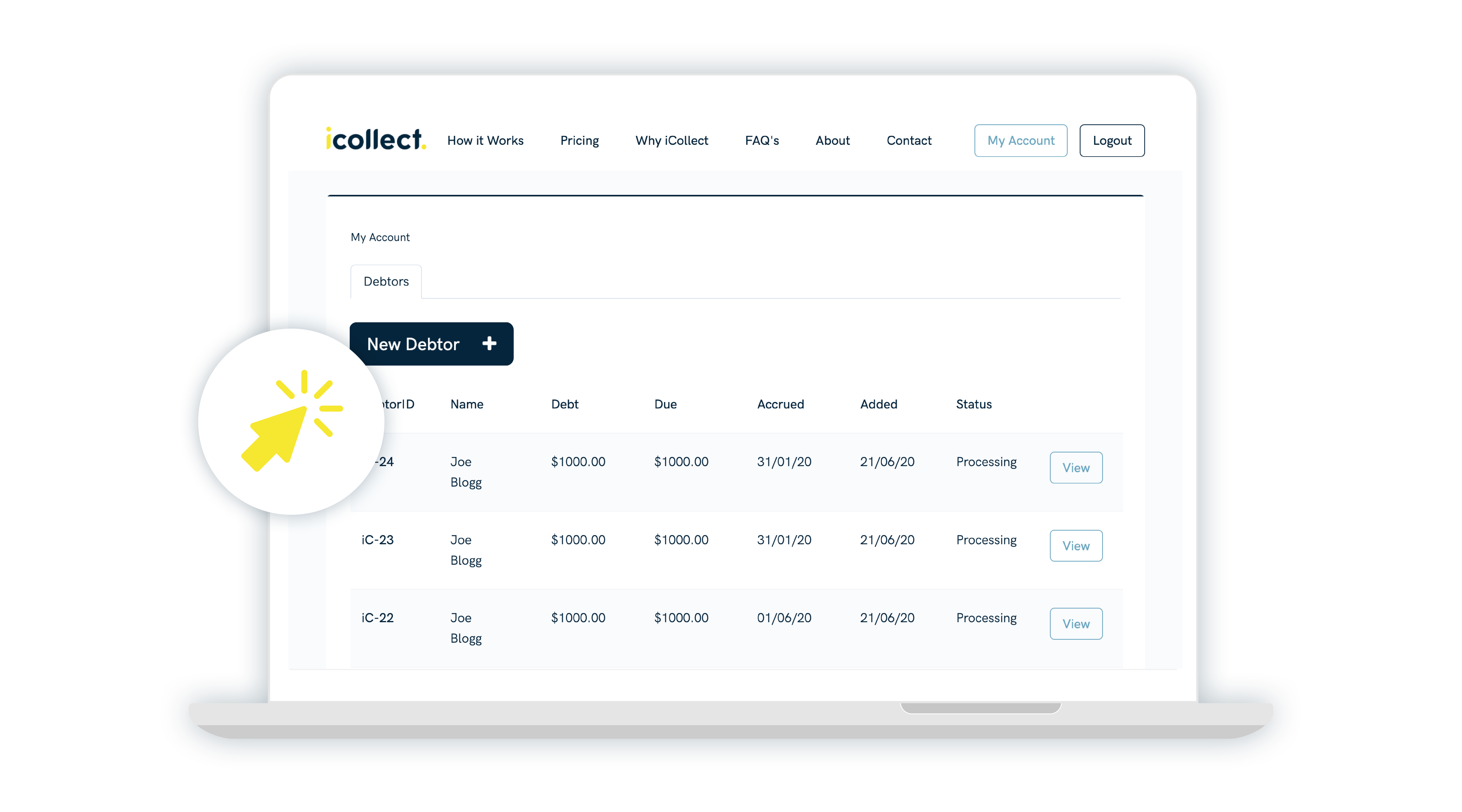Just like starting a company and navigating the business world, there are substantial lessons to learn when it comes to debt recovery. Mistakes made in your initial attempts to collect unpaid invoices can lead to cash flow issues, so knowing what NOT to do is the first step.
iCollect is no rookie when it comes to debt collection, with its DiY software that has helped thousands of Kiwi businesses recover unpaid debts since it began in 2001.
Here are five common rookie mistakes made by businesses and how to avoid them.
1. Keeping it casual. While invoices are always in paper or electronic format, communicating when a debt hasn’t been paid can often take the form of a phone call or casual chat. These are good rules of communication, but you do need to reinforce this with written confirmation that debts are outstanding, and communicate when you need these paid.
iCollect’s DiY letters are easy to activate, set out obligations in writing, and because they are aligned with a third party debt collection agency, their letterhead branding gives you the leverage and weight of a debt collector at your fingertips. Yet you are the one taking control with both hands!
2. Exercising patience. While patience is a virtue, this is less relevant when it comes to debt collection. Taking action as soon as an invoice becomes overdue demonstrates to your debtor that you mean business and communicates to them that you will pursue future measures if the outstanding debt is not paid.
iCollect’s staggered series of communications can be triggered as soon as you need them and if no payment or communication has been received from your debtor, letters are automatically sent at days 7 and 14 of the process. iCollect now also has text messages to accompany the letters, ensuring your message gets through in multiple channels.
3. Taking your eye off your accounts. We can’t stress enough that one of the biggest mistakes you can make is not looking at your slow payers everyday so you know who to stay on top of and when to get in touch with them. If you don’t have a system in place to handle this, set a diary note every day to look at unpaid invoices and take action. It means you not only stay on top of unpaid debts, but it’s been proven that the earlier the action in terms of debt recovery, the better the result in terms of getting paid faster and in full.
With iCollect, once you get the process started, they look after the diarising and the letter sending. All you need to do is initiate the process and load the debt, and the rest is taken care of, leaving you to keep your eye on other important parts of your business.
4. Inaccurate information and customer details. Having the right customer information and data is crucial to getting the best results from your debt collection efforts and to minimise your time and effort. When you are taking on new clients, ensure your onboarding process is structured to obtain the right information about them, so that the system can work effectively otherwise later down the track.
Once you have your debtors details in the system, iCollect gives you the time saving flexibility of combining more than one invoice to the same debtor, so they know exactly where their obligations stand and you have a record of which debts you have communicated with them about.
5. Wasting time or money on tactics that don’t get results. If you have made some of the mistakes above or are time poor and focused on other business priorities, hand your debt collection over to a cost-effective expert while still retaining control. Let’s face it; no one likes emailing or calling a late payer about outstanding debt and getting nowhere.
iCollect is the perfect blend of retaining your ownership throughout the process, while having an automated, simple solution.Thousands of Kiwi businesses swear by the effectiveness of the iCollect solution. The results speak for themselves!
